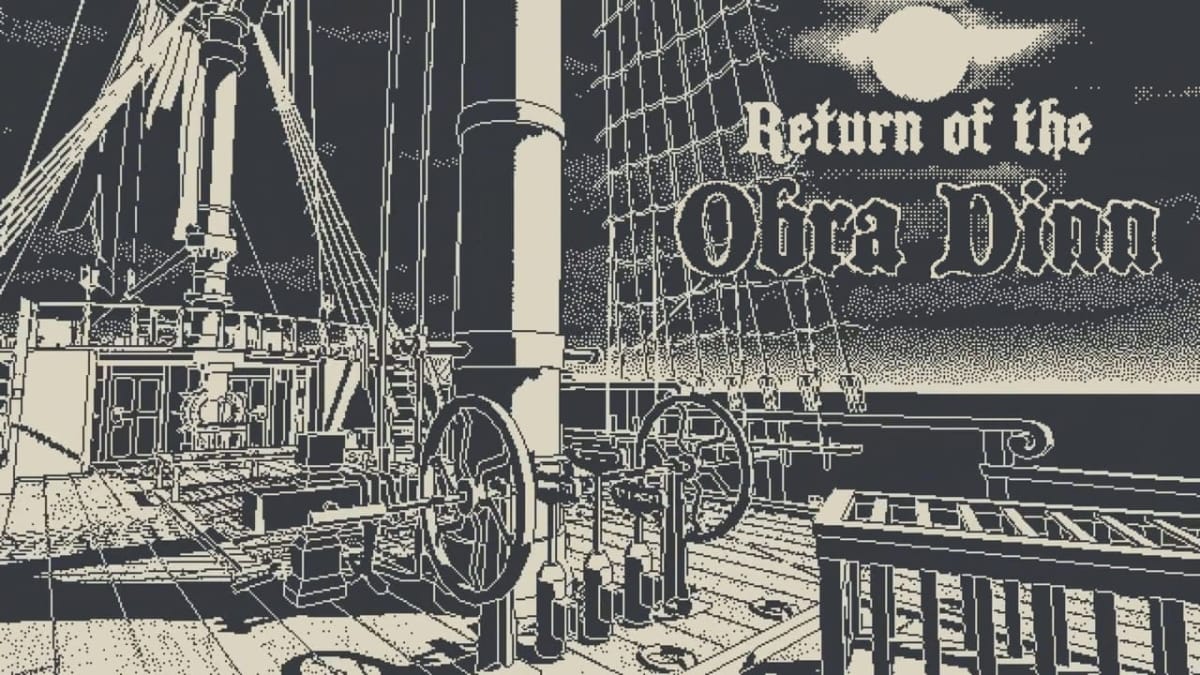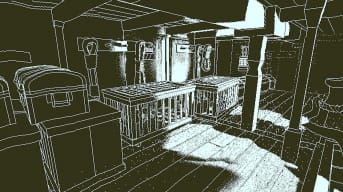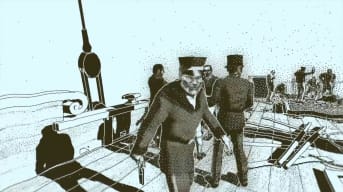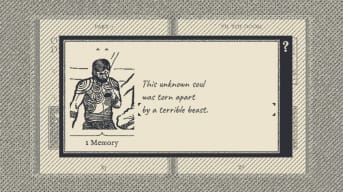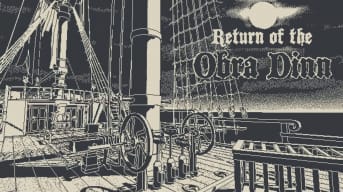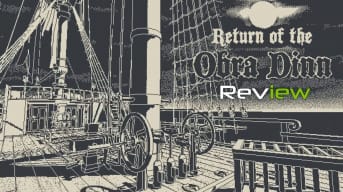Lucas Pope's (Papers, Please) next game leaves the glorious land of Arstotzka and its bureaucracy behind for a minimally colored sea insurance adventure. Set in the 1800s, you are out to solve the mystery of what happened with the ship the Obra Dinn.
Here's a description from the Steam Store page:
"An Insurance Adventure with Minimal Color
In 1802, the merchant ship Obra Dinn set out from London for the Orient with over 200 tons of trade goods. Six months later it hadn't met its rendezvous point at the Cape of Good Hope and was declared lost at sea.
Early this morning of October 14th, 1807, the Obra Dinn drifted into port at Falmouth with damaged sails and no visible crew. As insurance investigator for the East India Company's London Office, dispatch immediately to Falmouth, find means to board the ship, and prepare an assessment of damages.
Return of the Obra Dinn is a first-person mystery adventure based on exploration and logical deduction."
From an interview between Ars Technica and developer Lucas Pope:
"My first computer gaming experiences were on the Macintosh. So that formal idea of what an interesting, good, long game would be was on the Mac. Those were all black-and-white. So with Obra Dinn, I wanted to do something visually cool. Like, whatever happens as a story design, I want it to look like those cool games I played when I was a kid." - Lucas Pope
From an interview between Gamasutra and developer Lucas Pope:
"Papers Please was kind of a design first project where I had the idea for the mechanics. This one, Obra Dinn was visuals first, so more art focused. I wanted to make something 1-bit. And just kind of banging on that for a while ended up with this setting on the ship, and then after a few months, the core concept of figuring out how people died.
It’s basically me taking what I played as a kid, which was Macintosh Plus games which were 1-bit. For the time, they were actually high resolution. It was only 512x342 or something crazy like that, but it’s on a 9-inch screen so it's very sharp, very striking for me as a kid. And I played a lot of games that way. And I specifically remember never thinking—it’s hard to remember not thinking something—but for me I never thought, "I want more colors here." To me it always looked beautiful in one bit.
